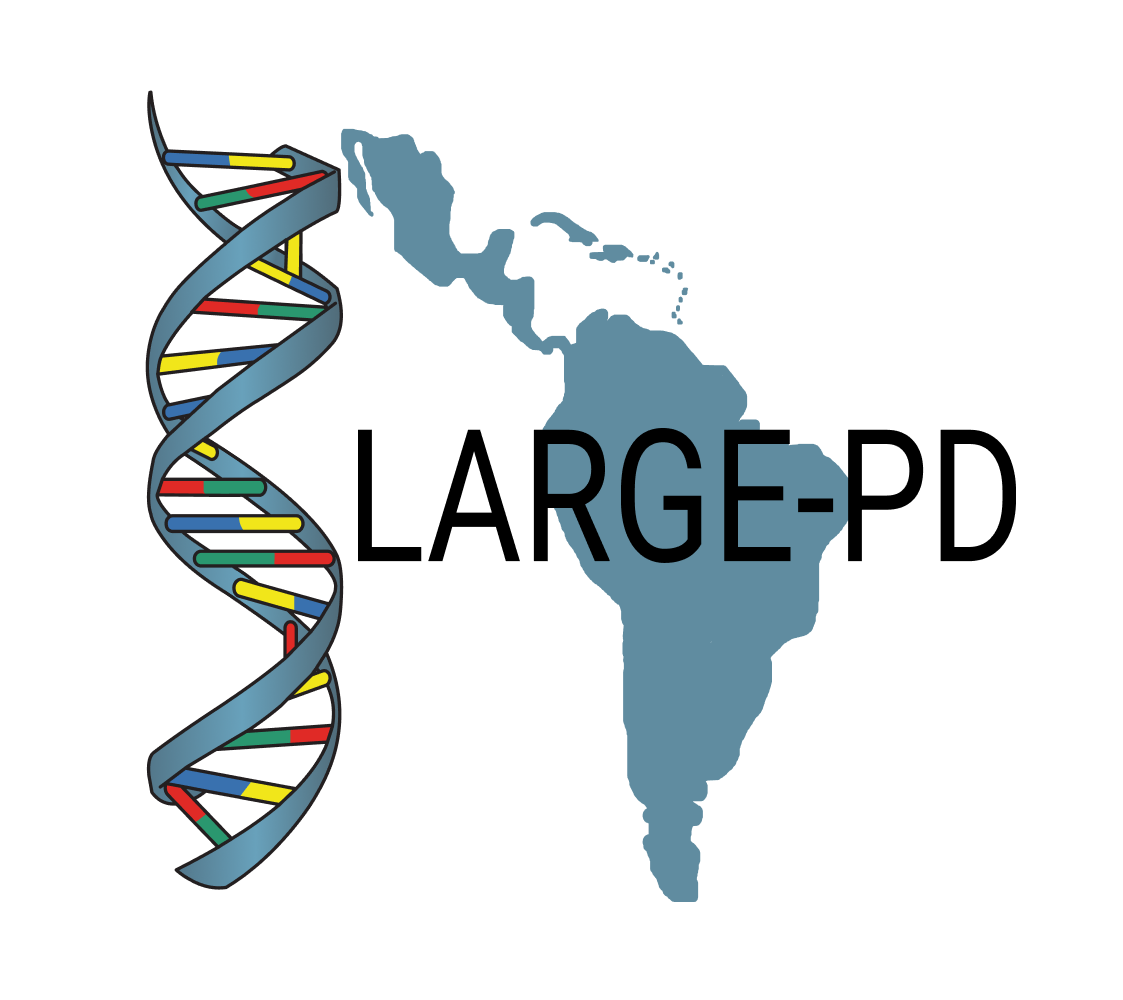CURRENT
2021 Global Parkinson’s Genetic Program (GP2) Working Group; Grant from the Michael J. Fox Foundation. “The Latin American Research Consortium on the Genetics of Parkinson’s Disease (LARGE-PD)” ($95,450)
Through this one-year grant, the Mata team finances the recruitment process to increase the number of Latino participants within the United States.
2019-2021 Grant from the Michael J. Fox Foundation: “The Latin American Research Consortium on the Genetics of Parkinson’s Disease (LARGE-PD) & One year Supplement ” ($1,167,133)
The overarching objective of this project is to expand LARGE-PD by more than doubling the number of participants, bringing the total to almost 9,000 individuals, in 2 years. We will do this by supporting the recruitment of participants in (a) key sites that have been very successful with recruitment in the past and (b) in 19 new sites across 4 countries (3 new countries and Brazil), allowing us to increase the diversity of our cohort. We will also start collecting plasma in at least 11 of these sites, in addition to DNA extracted from blood, with the goal of building resources for future projects that may include analysis of biomarkers or gathering other –omics data, not only genomics. Among the countries that will receive either economic support and/or supplies for the recruitment process are: Argentina (1 site), Brazil (14 sites), Colombia (3 sites), Chile (2 sites), Costa Rica (1 site), Honduras (1 site), Mexico (2 sites), Peru (1 site), and Puerto Rico (1 site).
2020-2025 R01 Award (R01NS112499) from the National Institute of Neurological Disorders and Stroke (NINDS): “Identifying novel Parkinson’s disease genes exploring understudied Latino populations” ($3.1M)
The goal of this application is to elucidate the role of genetics in the development of PD in Latinos. First we will try to replicate our preliminary findings in the first Genome-Wide Association Study (GWAS) for Parkinson’s Disease (PD) in Latinos by performing a new GWAS in 6,000 additional individuals (recruited thru the Michael J. Fox Foundation grant). We will also perform a trans-ethnic GWAS in collaboration with groups working on European and Asian PD cohorts. Second we will used whole-genome sequencing for at least 25 families that had screened negative for a panel with the most important known PD genes. Lastly, we will use all our data to generate and test a Latino-specific Polygenic Risk Score (PRS), which will account for possible additive effects between all associated variants and will help improve PD risk prediction in this population. This project will identify the genetic variants associated with PD in this understudied population, identify additional therapeutic targets, and improve diagnosis and risk prediction in Latinos, contributing to our understanding of differences in risk across diverse populations.
COMPLETED
2009-2011 Grant from the Parkinson’s Disease Foundation (PDF): “Creating a South American Genetics consortium on Parkinson’s disease” ($150,000)
It was becoming increasingly clear that the frequency and distribution of specific risk alleles vary greatly between populations and that much would be gained from analysis of more globally representative collections of samples. Unfortunately, large-scale PD genetic studies were lacking in populations from developing nations. The major aim of this project was to establish a multicenter PD genetics consortium across South America. Thus, we proposed to create a South American Genetics Consortium on PD including five institutions in four countries (Argentina, Brazil, Peru, and Uruguay). A total of 1,750 PD patients and 1,650 matched controls were expected to be enrolled over a two-year period using uniform diagnostic criteria. Blood specimens for DNA extraction and demographic, clinical, and environmental exposure data were going to be collected using standardized protocols. The major accomplishment of this project was the creation of the Latin American Research Consortium on the Genetics of PD (LARGE-PD), including 1,563 PD patients and 1,479 healthy controls from six institutions in 6 different countries (we added a site in Colombia).
2012 Advancing Parkinson’s Therapies Conference Award from the Parkinson’s Disease Foundation: “Cognitive Assessment for Parkinson's Disease in Multi-Cultural/Linguistic Populations”
A total of fifteen people attended the conference. Representatives from Institutions in 3 Latin American countries and a panel of US researchers discussed for a full day the current knowledge of Cognitive impairment in Parkinson’s disease including the different tools to assess it and how to apply and interpret them when working with different populations/cultures, giving special attention to the Montreal Cognitive Assessment test (MoCA).
2016-2019 Stanley Fahn Junior Faculty Award from the Parkinson’s Disease Foundation: “Parkinson’s disease genetic risk factors in Latino populations” ($300,000)
The major goal of this project was to find Parkinson’s disease genetic risk factors in Latinos. We proposed to perform the first-ever genome-wide association study (GWAS) in Latinos using 1,500 individuals from LARGE-PD. We used the Multi-Ethnic Genotyping Array (MEGA) from Illumina to genotype over 2 Million genetic variants across the genome. The major accomplishments of this project can be found in these 3 papers (ref for CNV, GWAS, and PRS)
2017-2018 Grant from the American Parkinson’s Disease Foundation: “Next-Generation Sequencing of Parkinson's Genes in Understudied Latin American Populations” ($50,000)
The major goal of this project is to assess the role that known genes play in developing PD in Latinos as well as identify candidate families that could hold the key to the discovery of novel causal genes for PD. To accomplish this we proposed to sequence 49 PD and dementia associated genes in 350 individuals with a family history of PD using a Next-Generation Sequencing Panel.
